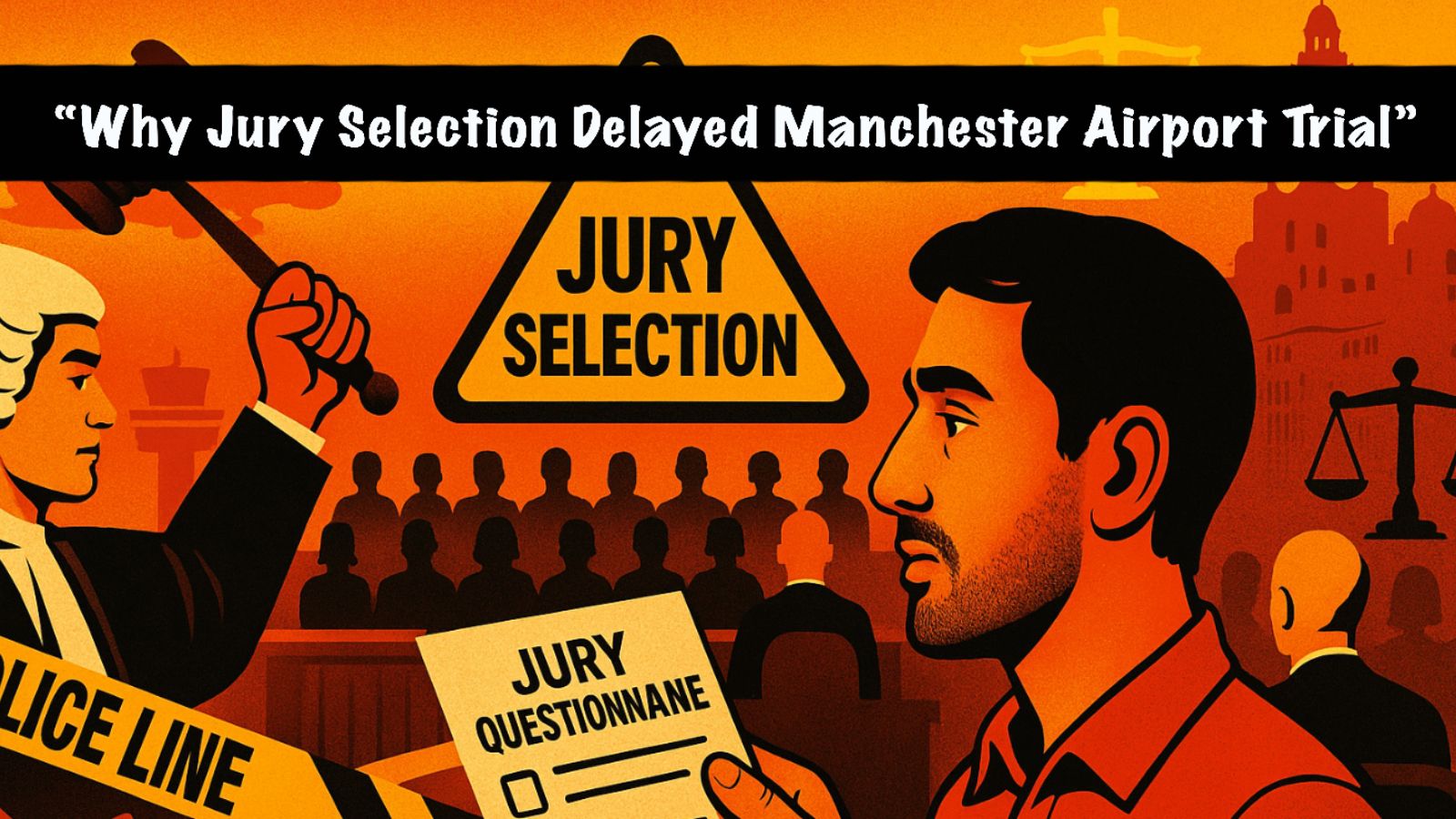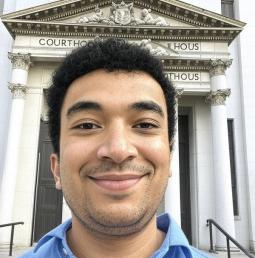🔴 Why Did Jury Selection Take So Long in the Manchester Airport Assault Trial?
Why did jury selection take 2 days in the Manchester Airport assault trial? Learn the legal reasons behind the delay in the high-profile Rochdale brothers’ case.
When the trial of Mohammed Fahir Amaaz and Muhammed Amaad finally opened at Liverpool Crown Court, many observers – including members of the public – expressed confusion about why it had taken several days before the prosecution even began outlining its case. For three full days, the courtroom sat without a word of evidence being heard. What happened during that time was not an unfortunate delay, but vital deliberation: a meticulous and careful jury selection process, conducted with the seriousness required by law in a high-profile case of this kind.
The trial, which concerns a violent confrontation at Manchester Airport’s Terminal 2 on 23 July 2024, is being conducted in front of Judge Neil Flewitt KC. The case has already attracted national attention, not least because of the circulation of video footage showing police officers attempting to detain one of the defendants, during which several officers are injured and the suspect is kicked to the head. The virality of that footage – and its potentially prejudicial effect on members of the public – is one of the key reasons why the Crown Court took two full days to empanel a jury, screened to judge the case impartially, without prejudice and based solely upon evidence and legal arguments presented in the courtroom.
Contrary to many recent claims online, this provision is not unusual. And, given the circumstances of this case, it was both proportionate and necessary.
Jury selection in the UK is not typically a drawn-out process. In routine cases, a jury can be sworn within an hour or two – jurors are chosen randomly from the electoral register, and unless challenged for cause, they serve. But when a case has attracted serious media interest, when online footage has influenced public perception, and when allegations of violent conduct against police officers are involved, the situation changes entirely.
This case is a textbook example. The Rochdale brothers are accused of attacking police officers at an international airport, an allegation that is likely to inflame opinion. The incident was filmed on body-worn and CCTV footage, some of which entered public circulation before the trial began. The public interest was further fuelled by social media coverage, national news headlines, and regional reports.
In such a climate, the justice system cannot take any chances. Jury selection must be conducted not only with care, but with foresight.
On Monday 30 June, the court began with a panel of 40 potential jurors. Each was asked to complete a screening questionnaire. This is standard practice in sensitive trials, and its purpose is clear: to identify and exclude those who may have prior knowledge, fixed views, or conflicts of interest. It allows the court to identify any connections jurors might have with witnesses, or whether they have consumed prejudicial content about the case online.
From those 40, just 28 were retained. That alone illustrates how thoroughly the panel was examined. On Tuesday, those 28 were further assessed, and legal counsel for both prosecution and defence were given the opportunity to challenge individual jurors. These “challenges for cause” can be based on personal bias, relationships to the parties, or prior exposure to the facts of the case. Any juror whom the court believes may not be able to remain impartial is disqualified.
The process extended into Wednesday morning, at which point Judge Flewitt KC gave a final warning to jurors not to seek out information about the case online. Only after that did the swearing-in of the final jury take place – three days after the trial had first been listed.
This is not without precedent. In 1969, at the height of the Kray Twins’ notoriety, the Old Bailey took extraordinary steps to empanel an unbiased jury for the trial of the brothers. Because their reputation had so permeated public life, the trial judge ordered extensive exclusions. Jurors known to have read coverage of the Krays in the press were removed. The bar was set high – and it is to that standard that Judge Flewitt appears to have aspired here.
The use of pre-selection questionnaires is also not unusual. In terrorism trials, fraud cases, and other high-stakes proceedings, courts will often rely on detailed written responses to identify latent bias. Indeed, the Crown Prosecution Service permits jury vetting in cases of public importance, particularly where national security or racial issues are at play.
The duration of this process must also be viewed proportionately against the expected length of the trial. This case is scheduled for three full weeks. Taking two days to ensure that the individuals charged with reaching a fair verdict are impartial, attentive, and untainted by media, is neither excessive nor inefficient – it is sound judicial management.
There were other complications, too. The footage of the incident – some of which has already been played to the jury – was widely shared online. Potential jurors were therefore at risk of having already seen and formed views about the most pivotal moments in the case. The court had to be certain that those selected could assess that same footage dispassionately when it was formally admitted as evidence.
It is worth noting that such pre-trial precautions can prevent much longer delays later on. A case in which a jury is later discharged due to improper conduct, bias, or misconduct can be derailed entirely. Mistrials cost time, public money, and – more importantly – can deny justice to victims and defendants alike. In that light, two days of jury selection is not a cost, but an investment in fairness.
In sum, the three-day delay before opening arguments in this trial was not a procedural stumble, but a constitutional safeguard. It ensured that justice could be administered free from prejudice, in accordance with law and in the full view of the public.
That is the hallmark of an independent judiciary. And that is what this case – and every case – deserves.
Well, that’s all for now. But until our next article, please stay tuned, stay informed, but most of all stay safe, and I’ll see you then.




